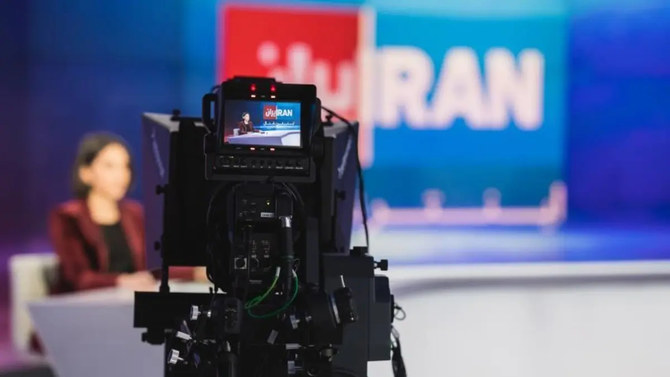LONDON: British authorities have been urged to strengthen the protection of staff at London-based Iran International after two of its journalists were threatened with death by the regime in Tehran.
The request by the Committee to Protect Journalists, a US-based media rights group, said the threats were the latest in a string of attempts by the regime to intimidate independent journalists beyond the country’s borders.
“Time and again Iranian authorities have acted with impunity in attempting to silence journalists around the world,” said Sherif Mansour, the CPJ’s Middle East and North Africa program coordinator.
“UK authorities must ensure the safety of Iran International’s staff and send a message that threats to journalists on its soil will not be tolerated. Until foreign governments hold Iran accountable, this trend will only worsen. Journalists will continue to face unacceptable threats to their safety.”
Iran International said it was informed by police of specific threats against two British-Iranian staff by the Islamic Revolutionary Guard Corps, the regime’s armed wing.
The independent Persian-language channel said that police believed the threats represented “an imminent and significant risk to their lives and those of their families.”
British MPs have meanwhile urged the government to designate the Revolutionary Guard as a terrorist organization.
“What more does IRGC have to do before we proscribe them in their entirety?" Conservative MP Bob Blackman said on Tuesday during a debate in the House of Commons.
Labour MP John Spellar said that the UK must follow its US allies in banning the armed wing, calling it “the protectors of the Iranian clerical-fascist regime.”
According to CPJ, authorities have arrested 61 journalists in Iran since protests began in September. It has documented the release on bail of only 13 of them.
Iran is experiencing the largest anti-government protests for decades, sparked by the death of 22-year-old Mahsa Amini at the hands of the country’s “morality police” for allegedly violating the country’s strict laws on headscarves.
According to rights group HRANA, more than 300 people have been killed in the protests.






























